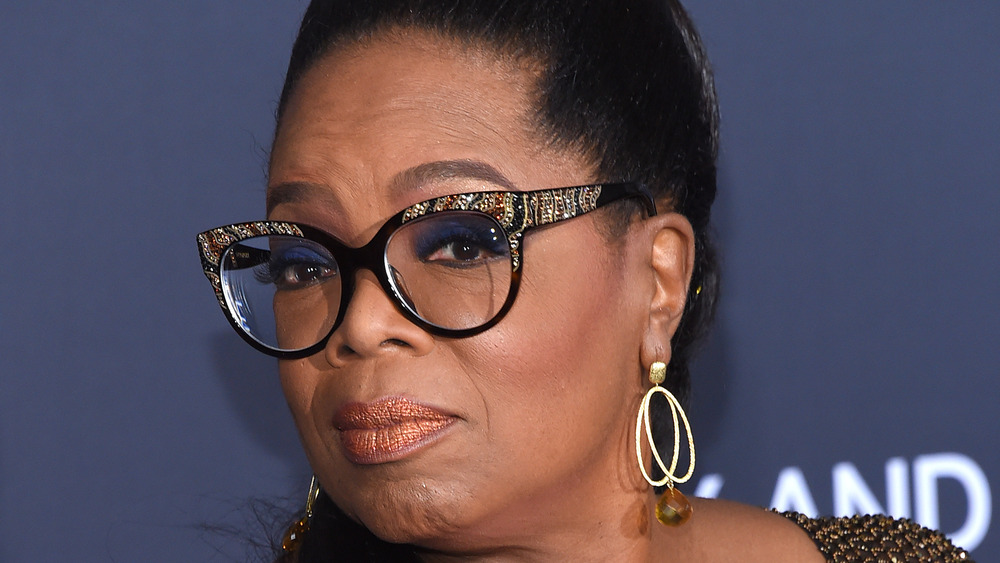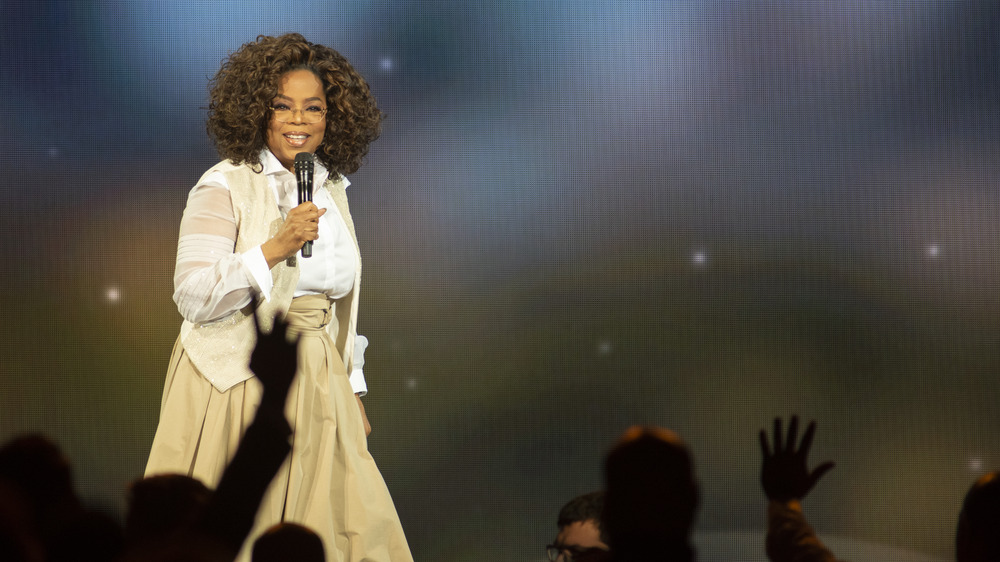How Oprah Got Sued For Criticizing A Burger
While the United States never experienced a spread of bovine spongiform encephalopathy (BSE) from the UK during its 1990s outbreak, mad cow disease lay at the core of a lawsuit flung against Oprah Winfrey in the late '90s. As The Texas Tribune recalls, Oprah ran an episode in April 1996 about food safety, so, of course, she referenced the neurodegenerative disease that could spread from cows to humans by consuming infected meat.
Also on the show was Howard Lyman, an animal rights activist who argued that the US would likely see the arrival of the disease. According to the Encyclopaedia Britannica, Lyman believed the spread would occur through the industry practice of feeding processed livestock to the cattle, like the producers whose goods were stricken in Europe. He went further with a suggestion that compared to BSE, AIDS might look like the common cold (via CNN). The whole thing, Oprah exclaimed, "just stopped me cold from eating another burger."
The segment did not please the cattle industry in Texas who claimed that due to the panic surrounding the episode, they saw losses exceeding $10 million ($12 million, according to CNN). So, they sued, citing the then-recently passed "veggie libel" law. Such laws, which saw widespread adoption in the '90s, made people liable for spouting false statements about the safety of food. So, Oprah went to Amarillo, Texas, where she would film episodes between hearings. An initial decision was rendered in Oprah's favor in February 1998, but she was sued again.
Oprah wins but the industry won as well
In 2002, the second case finally ended when it was dismissed. Oprah would not have to pay damages to the cattle industry. According to an Associated Press report shared by My Plain View, Oprah addressed her waiting supporters from the courthouse steps with "Free speech rocks!"
The Encyclopaedia Britannica, which includes the case as an example of food libel cases, took a more sober view. While indeed free speech won during the case, the real reason for its dismissal, they contend, was that the judge found that beef was not sufficiently perishable for it to count under the Texan libel law. So, the law remained unchanged, the cattle industry received a chance to prove that their beef was safe before a watching national audience. And even with Oprah's win, it took years and mounds of expenses to pull off, discouraging future critics.
The claim to victory by both sides is also reflected in the Texas Tribune. Oprah continued her speech: "I believed from the beginning this was an attempt to muzzle that voice.
I come from a people who have struggled and died in order to have a voice in this country, and I refuse to be muzzled." Paul Engler, a beef and pork company leader and chief plaintiff, later said the suit forced Oprah to take a more circumspect approach and invite experts to back up claims. So, he considered it a win.

